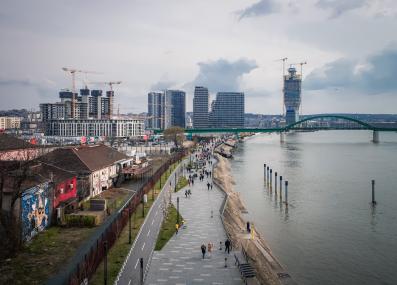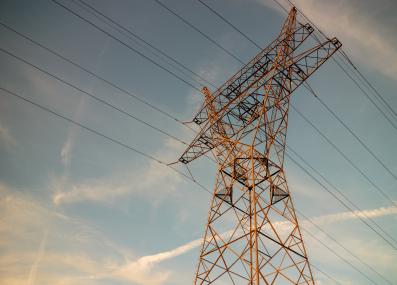Have a question?
Will upgrading our homes to run entirely on electricity make us more vulnerable to blackouts?
Surprisingly, going fully electric could make homes more resilient to disaster, by giving us more backup options during emergencies.
May 1, 2023
“Electrify everything,” a hot topic in sustainability, means replacing all fossil-fuel-burning systems with electrically powered ones. For example, homeowners could swap gas stoves for electric ones and replace home heating systems that burn gas or fuel oil with electric heat pumps. Research scientist Pablo Duenas-Martinez of the MIT Energy Initiative says this is the best way to lower our homes’ climate-warming greenhouse gas emissions—because this way, as we make more of our electricity from clean sources like wind and solar, our stoves and heaters get cleaner, too.
Yet the electric grid that powers these stoves and heaters is vulnerable to disaster, including weather events such as major hurricanes and extreme winters storms that are growing more severe because of climate change. Does this mean a fully electrified society is at greater risk from blackouts?
Duenas-Martinez says no. In fact, all-electric homes may prove to be more resilient.
This seems counterintuitive: in theory, gas stoves and heaters could work without electricity, while their electric replacements would be useless. In practice, Duenas-Martinez notes, things aren’t so simple.
First, fossil fuels aren’t foolproof, either. “The gas system is equally vulnerable as the electricity system in cold weather conditions,” he says. Gas pipes can freeze and break, as they did during the 2021 winter blackouts that crippled Texas.
Secondly, core parts of the distribution system that gets natural gas into homes, including the substations that compress the gas, require electricity. In a widespread blackout, then, that gas stove may not be able to get any fuel.
By contrast, people know how to make backup electricity during a crisis. Hospitals and other places that need to keep the power on, no matter what, install generators in case of emergency. Many homeowners have smaller, residential-sized generators.
Of course, these generators burn dirty fossil fuels like diesel. But it’s possible to imagine a future in which cleaner systems supply backup electricity, Duenas-Martinez says. Homes equipped with solar panels could make electricity for themselves even if a blackout strikes the grid. In the coming decade, many more Americans will drive electric vehicles, which are essentially giant batteries on wheels. Those equipped with two-way charging, like the Ford F-150 Lightning pickup truck, could use their stored energy to power a home. In the future, forward-thinking neighborhoods or communities could even establish their own micro-grids—installing large batteries or other energy storage solutions for residents to share in case of a blackout, as the city of Chelsea, Massachusetts, is doing now.
Even so, Duenas-Martinez says, it is crucial to harden the grid and make it more resilient against extreme weather. Solutions include moving power lines underground to protect them from threats like ice, high winds, and fire; maintaining trees so they are less likely to fall on electrical lines; and moving power substations away from flood-prone areas. In towns like Babcock Ranch, Florida, measures like these have already helped residents keep their power on through major disasters.
These measures won’t make the grid invincible. And governments, says Duenas-Martinez, are unlikely to spend huge sums of money to weather-proof the grid against the very most extreme (and therefore rare) storms. Yet even with the grid’s weaknesses, he says, going all-electric is still our best bet—both for reducing greenhouse emissions and getting through an emergency. “Survivability is better when you're electrified than when you are not electrified.”
Thank you to Mike Sarcione of Eastham, Massachusetts, for the question. You can submit your own question to Ask MIT Climate here.









